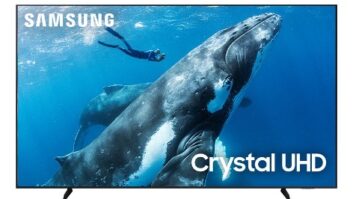Washington – Final comments on
whether the Federal Communications Commission (FCC) should extend
satellite-radio rate caps beyond July 28 are due tomorrow at the FCC.
During a Deutsche Bank conference
earlier this week, SiriusXM executive VP/chief financial officer David Frear
said the caps would “probably expire,” claiming most of the comments sent to
the FCC argued for expiration.
The commission
of the Sirius-XM merger in 2008 on a commitment by the
broadcasters to hold prices for three years. The FCC also reserved the right to
extend, remove or modify the caps after the three years were up.
The caps apply to the
broadcaster’s $12.95/month standard packages as well as to the $6.99 a la carte
service offering a selection of about 50 channels, $9.99 mostly news/talk
service, and a $9.99 mostly music service. The cap also applies to a
$16.99/month “best of” packages that delivers all XM channels, plus some Sirius
channels, and all Sirius channels plus some XM channels. The caps also cover
family-friendly versions of the broadcaster’s plans, allowing for $1 off the
standard packages and $2 off the “best of” packages.
The caps do not apply to future
services that SiriusXM would offer under its 2.0 service due in the fall.
Some plans — such as “best of,”
a la carte, mostly news, mostly talk, and family-friendly options — were
created to meet conditions required by the FCC for merger approval. Only the
rate caps on those plans could expire on July 28, not the requirement that the
plans be offered, an FCC spokesperson told TWICE.
When it approved the merger, the
FCC said the voluntary commitment to freeze prices, excluding passthroughs of
any increase in music royalty fees, “would mitigate the harm from any
post-merger price increases.” The FCC also stated that “it did not know what
the competitive landscape would be like in three years” and that it would seek
public comment “on whether the price cap continues to be necessary in the
public interest and whether the price cap should be modified, removed, or
extended.”
In arguing for a lifting of the
caps, SiriusXM contended that “it is clear that the audio entertainment market
is even more robustly competitive today than it was in 2008” and that “satellite
radio competes for listeners with an expanding array of audio entertainment
choices — most of which are available to consumers for free.” The choices
include HD Radio, iPods, and other portable audio devices that “increasingly
include Internet-based services, such as Pandora, Rhapsody, Slacker, Lastfm and
iHeartradio,” SiriusXM said. “This competition for audio entertainment is
especially acute in vehicles, with several automakers introducing features
integrating Internet-based services, further reducing any remaining arguable hurdles
to the seamless use of smartphones, iPods and other portable audio devices in
vehicles.”
In its comments to the FCC,
SiriusXM also quoted from the Department of Justice’s approval of the merger.
The department at the time noted that “a
number of technology platforms are under development that are likely to offer
new or improved alternatives to
satellite radio [including] … the expected introduction within several years of
next-generation wireless networks capable of streaming Internet radio to mobile
devices.”
In his comments at the Deutsche
Bank conference, Frear said IP-based music services “will continue to
proliferate and will move from fixed locations to mobile” at what he called a “rapid”
pace.
Although “it will get more competitive in the
car,” Frear continued, “I like our chances.” He pointed to the company gaining 20
million subscribers despite competition with terrestrial analog and HD Radio
and Internet radio. He also pointed out that Internet music services “are going
away from subscription to ad-based [business plans].” That development “makes
me feel a little bit better,” he said, because “we have done well against
ad-based radio.” Local adds, he added, “are not a meaningful part of our
business, and most of the 2 percent of revenues coming from ads are coming from
national ads.
The growing competition for ear
time could come in part from owners of 2.3GHz Wireless Communications Service
(WCS) spectrum, but the owners, through their WCS Coalition, argued that the
FCC should retain the
existing price cap on an interim basis. The cap should stay, the coalition
said, until the FCC decides how to respond to petitions to reconsider a 2010
decision allowing mobile wireless service — potentially including Internet
music service — in the 2.3GHz WCS band. Mobile service in the WCS band, which
operates next to satellite-radio spectrum, was originally precluded under 1997 rules adopted by the FCC, which limited WCS service to fixed
locations.
The 2010 decision was “a useful first step towards
eliminating the regulatory impediments that effectively precluded WCS from
delivering Internet-based services to mobile consumers,” the coalition said.
Questioning whether
cellular networks have the capacity to handle Internet radio traffic, the WCS
Coalition said it “certainly believes that, if sufficient mobile broadband capacity is available to support the
wireless delivery of Internet-based services to automobiles, those
services will be perceived as competitive by consumers, and SiriusXM’s ability
to increase prices will be disciplined.”
However, “a consumer
will only consider Internet-based services as a competitive alternative to SiriusXM
if he or she consistently can receive those Internet-based services without
disruption (either due to a lack of bandwidth, RF interference, or coverage
gaps).
“By first assuring that spectrum will be available for the
delivery of Internet-based audio services to automobiles and other places where
consumers listen to SiriusXM, the Commission will then be able to lift the
price cap without fear of anti-consumer impacts.”













